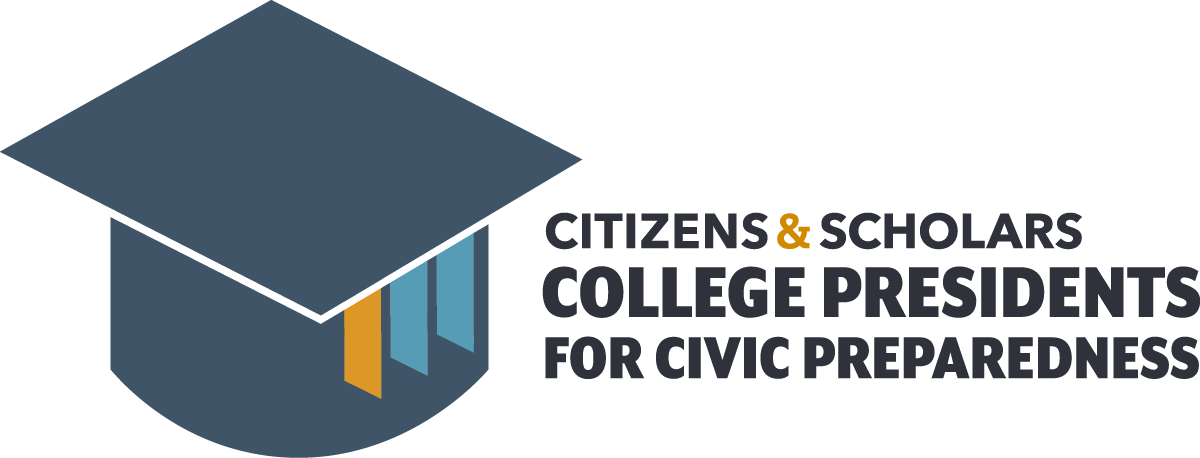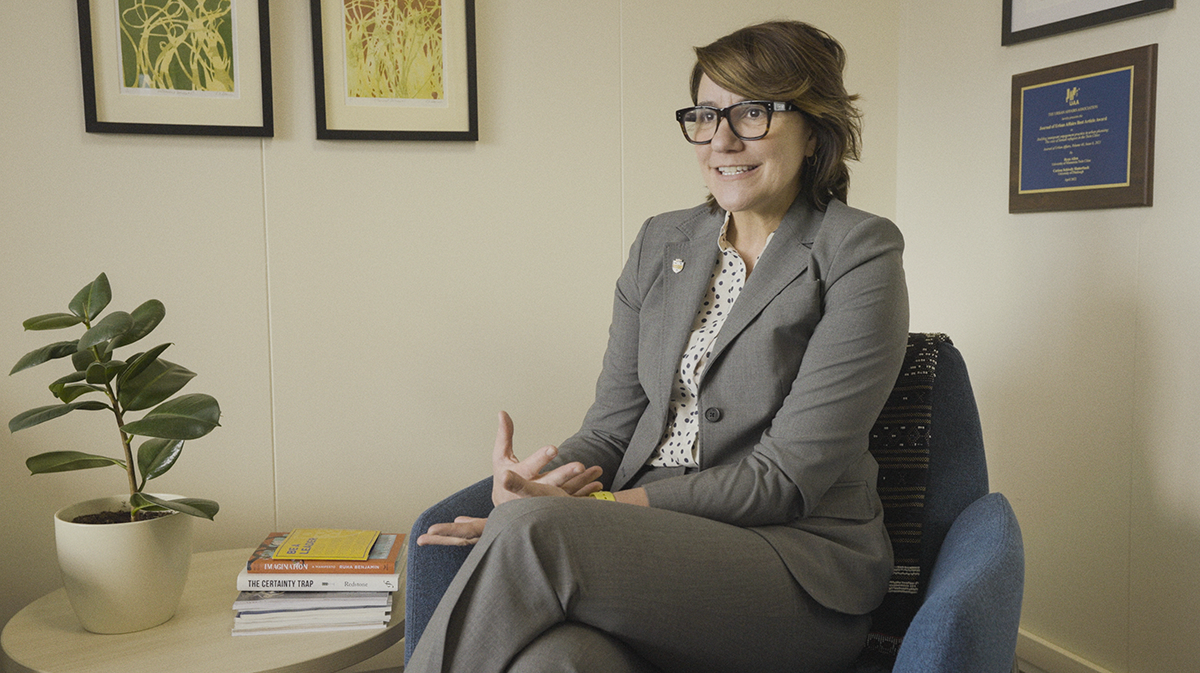Carissa Slotterback is the Dean of the School of Public and International Affairs at the University of Pittsburgh and Co-Chair of the Year of Discourse and Dialogue.
“This work is so important. It’s essential to higher ed’s commitment to freedom of expression, open inquiry, and meaningful engagement across difference. These aren’t just academic skills—they’re human ones. We need them more than ever.”
Why do you do this work, and who do you do it for?
Our work on discourse and dialogue at Pitt is central to who we are as a university. Universities bring together people from many backgrounds and perspectives. The ability to engage across difference is critical to education, research, and community involvement. We’re helping students develop skills that are important both on campus and in their future careers.
Why is Pitt a good setting for this kind of work?
Pitt is a large university with students from nearby, across the country, and around the world. We’re in a politically divided state with a mix of urban and rural communities. In 2023, we designated the Year of Discourse and Dialogue, which brought energy and resources to this work. It created a platform for engaging faculty, staff, and students across the university and helped us to activate targeted programming and training.
What impact has the Year of Discourse and Dialogue had so far?
We’ve created many new opportunities by activating many units and audiences. For example, during welcome week, we offered sessions for incoming students on freedom of speech and expression. We’ve followed that with workshops for student leaders and resident assistants on how to have effective conversations. We’ve also partnered with the Center for Teaching and Learning to help faculty build their own skills and support dialogue in their classrooms. We have seen a high level of engagement, including via 59 discourse and dialogue projects submitted by groups of students, staff, and faculty that we funded across campus.
Can you share a specific example of a program you’ve implemented?
One effort we’re excited about is the possibility of incorporating discourse and dialogue into our general education curriculum. We’re looking at how to teach what discourse and dialogue actually are, what it means to bridge divides, and how those skills connect to students’ careers. We’re also exploring credentials—like a certificate or distinction—for students who want to go deeper into this work.
What does civil discourse mean to you?
For me, it’s about practices that show curiosity and openness. It is about engaging with empathy and in good faith. It means being willing to listen and learn from others, especially when you disagree. It’s about engaging thoughtfully and trying to move forward with deeper understanding.
How have you collaborated across the university to support this work?
We built a strong steering committee from the start that included faculty, staff, and students—people already doing this work in different ways. They helped us identify what was already happening on campus and think through what else we could do. We have exceptional interest across so many units at Pitt, with many students and colleagues coming to the table with ideas about how to advance discourse and dialogue in their work and for their audiences. We’ve also benefited from connections with the Institute for Citizens & Scholars and other universities.
How are you measuring the effectiveness of these efforts?
We’re looking at both participation and impact. Who’s engaging—students, faculty, staff—and what changes might we see in their willingness to engage across difference? We’re using surveys and planning qualitative analysis. This spring, we launched a campus-wide student survey to get a baseline and will repeat it next year to track changes.
What challenges have you faced?
Pitt is a big place, so sustaining engagement will be a challenge. But we’ve focused on tapping into people who are passionate about this work, and that’s helped build momentum. Some of what we’ve started—especially in our Office of Student Affairs, Center for Teaching and Learning, and through future curriculum changes—has real potential to continue well into the future.
What advice would you give to other institutions trying to launch civil discourse programs?
Jump in. This work is so important. It’s essential to higher ed’s commitment to freedom of expression, open inquiry, and meaningful engagement across difference. These aren’t just academic skills—they’re human ones. We need them more than ever.

